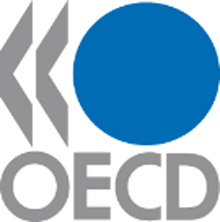The Organization for Economic Cooperation and Development (OECD) is heavily subsidized by US taxpayers, but spends a lot of time pushing an agenda against taxpayer interests. Richard Billies recently did a good job recounting the OECD’s ongoing list of big government initiatives:
…The organization is fundamentally a pro-big government bureaucracy that promotes all of the social welfare programs that are in the process of bankrupting Europe. Not only do they promote big government around the world but the OECD is constantly urging the United States to take the big government path.
They are using American tax dollars to promote a consumption-based, Value Added Tax that would impose taxes at every stage of production. More taxes means more spending in a constantly upward spiral, until there’s no more money.
The organization has a program that attempts to punish low-tax nations for the sin of trying to attract businesses from high tax nations. The United States is paying the bill for France and Germany’s attempt to form a global tax cartel.
The OECD is using American tax dollars to advocate wasteful stimulus spending and a national healthcare system in the United States. They’re using our tax dollars to promote increased welfare spending to increasing unemployment benefits.
The organization is advocating global warming legislation and cap and trade carbon taxes. They’ve also sided with the United Nations in endorsing a 400% increase in America’s foreign aid budget. Talk about direct interference in American internal affairs?
The OECD has endorsed and advocates global taxation, such as carbon taxes, currency transaction taxes and airline ticket taxes. All of the tax money would be remitted to the United Nations to finance their world government schemes.
The OECD has concocted a report filled with misleading statistics to make it appear that poverty in the U.S. is higher than in Greece, Hungary, Portugal, and Turkey. All in an attempt to support Obama’s socialist redistribution agenda.
That’s a long and disturbing list, though there’s one agenda item I’d like to add which, while not new for the OECD seems to be taking on renewed urgency, and that’s the automatic exchange of tax information. Richard Rahn recently highlighted this issue in a column for the Washington Times:
The OECD has just released a report bragging about its “progress” in getting countries to engage in automatic sharing of tax information. The report states: “The automatic exchange of information involves the systematic and periodic transmission of ‘bulk’ taxpayer information by the source country to the residence country concerning various categories of income (e.g., dividends, interest, royalties, salaries and pensions).” The Obama administration is actively supporting this effort.
This means that the most vile governments will receive financial account information automatically about individuals from other countries. Assume you are standing up to or protesting some corrupt or authoritarian regime in your own country – there are too many to name – and to protect your family, you have a bank account in the United States, Switzerland or some other nation that offers basic protections of civil liberties. Under automatic information-sharing, the thugs you are opposing will be receiving information about your finances from the U.S. government and other governments, which can put your property and your life at risk. The response from the bureaucrats in the OECD and Obama administration is “we protect confidential information,” as if they had never heard of Wiki-Leaks or the other never-ending hacks of government data. Again, we are told that governments will increasingly engage in “automatic” information-sharing and will “protect confidential information,” but please don’t notice the disconnect.
The appeal of automatic exchange to the global tax collectors is straight forward: it’s a back door means to harmonize tax rates and end tax competition. This would necessarily mean high taxes worldwide and a weakened global economy, and shows yet another instance where US subsidies to the OECD are against taxpayer interests.

